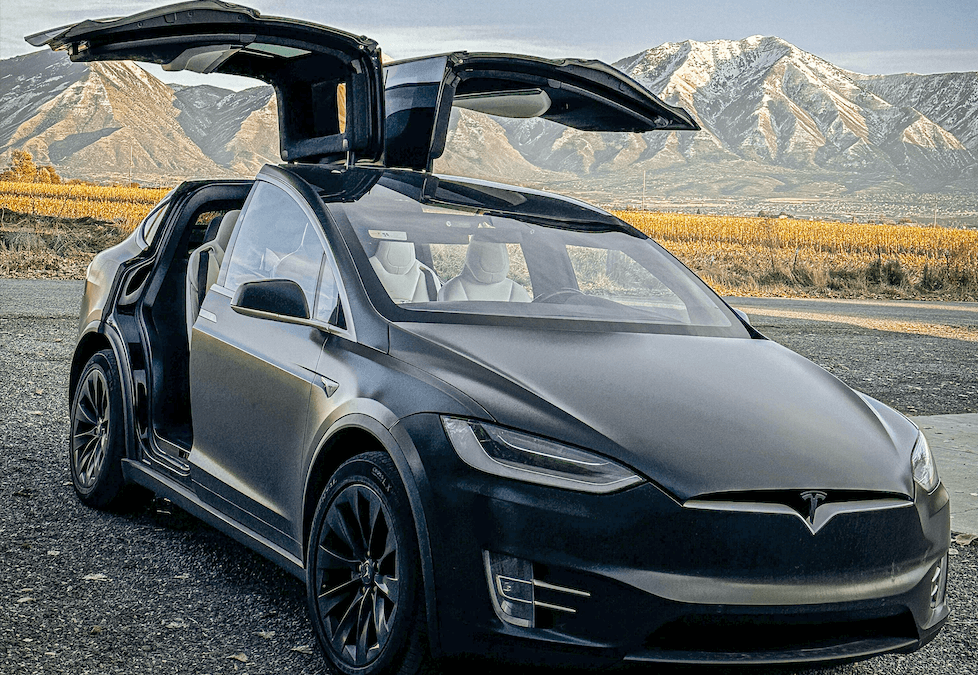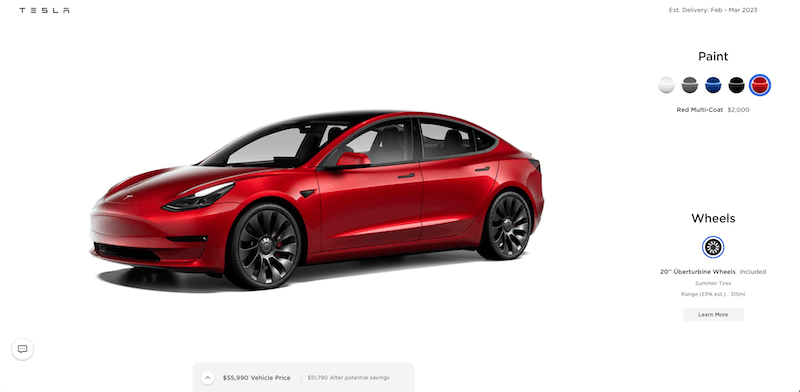
No matter what you think about Tesla, there are a few things you can surely learn from the company’s success.
In recent years, Tesla has revolutionized how cars and solar panels are sold online. Instead of relying on human sales representatives, Tesla has created a seamless, digital buying experience that allows customers to purchase vehicles and solar panels directly from the company’s website.
Although Tesla is a consumer company, there’s a lot that B2B companies can learn from Tesla’s approach.
Aligning with the modern buyer’s journey
Modern B2B buyers have evolved – they’re digitally-savvy professionals who prefer self-service and transparency over traditional sales tactics.
Think about how Tesla revolutionized car buying: instead of hiding prices and forcing dealership visits, they put everything online with their configurator. Buyers can explore options, see pricing changes in real-time, and make informed decisions at their own pace.
This shift reflects a fundamental change in how business decisions are made. Today’s buyers spend 70% of their journey researching independently online before ever talking to sales. They’re frustrated by outdated processes that require multiple calls just to get basic information or pricing. They want the same seamless experience they get as consumers – think Amazon’s one-click ordering or Apple’s intuitive product customization.
At HeadQ, we’re bringing this digital-first approach to B2B sales. Our platform empowers buyers with comprehensive product information, transparent pricing, and real-time configuration tools. Whether you’re a farm owner specifying a telehandler’s lift capacity and attachments, or a wellness center director configuring a cryotherapy chamber’s temperature range and safety features, you get instant visibility into options and costs. This eliminates the traditional back-and-forth of sales calls and emails, accelerating the buying process while giving decision-makers the control they demand.
The result? A modernized B2B buying experience that matches how business leaders actually want to purchase today – on their terms, with complete transparency, and zero pressure.
Customizable product? No worries, we’ve got you covered
B2B companies can learn from Tesla by adopting a similar digital-first mentality. For example, if you’re a B2B company that sells industrial equipment, you could create a visual product configurator where buyers can customize and purchase equipment directly from your website.

Product configurators make complex selling easier by allowing customers to select from a range of options and features and get the answers they need in real-time.
The rise of visual CPQ products has been massive. Companies of all sorts are adopting these tools to improve their buying experience. So whether you’re selling PVC warehouses, industrial machinery or even dental chairs, you should consider upgrading the experience you provide.
Like you can see from the example below, you don’t even need to provide the exact price, but you can give a price estimation and option for the buyer to request a binding quote from your company.
Transparency builds trust (psst and sales!)
Many B2B companies still prefer not to reveal their pricing information online. This leads to a situation where many unwanted customers end up reaching out to the company, forcing sales representatives to handle bad-fit leads.
There are a few reasons why B2B companies should follow Tesla’s example of transparently displaying prices. First, it builds buyer confidence. When you’re transparent about the prices of your products, you communicate to the buyer that you’re trustworthy and have nothing to hide. This can be especially important in B2B sales, where larger sums of money are involved and buyers may be more cautious.
Second, transparent pricing makes the buying experience a lot easier. When buyers can see your product prices upfront, they can make faster, more informed decisions. They don’t have to waste time requesting quotes or going through a long negotiation process. They can also compare prices across different suppliers and products more easily, which leads to better buying decisions.
Third, transparent pricing can increase conversions on your website. Faster buying decisions translates to higher conversions and sales for your company. Additionally, when you’re transparent about your prices, buyers are less likely to abandon their shopping carts or cancel their purchase.
Give Tesla’s approach a try
Tesla’s success in selling cars and solar panels online without the need for human sales representatives can be attributed to their digital-first mentality. By providing detailed information about their products and allowing buyers to customize and purchase directly from their website, Tesla makes the buying process more efficient and aligned with the modern buyers’ journey.
As a B2B company, you can adopt a similar approach and create an online platform for buyers to customize and purchase your products directly from your website.
Want to see how Tesla-like buying process is created?
Our blog post Building a Tesla-Inspired Visual Product Configurator (CPQ) for B2B helps you to get the understanding what it takes to build a visual product configurator for your business.